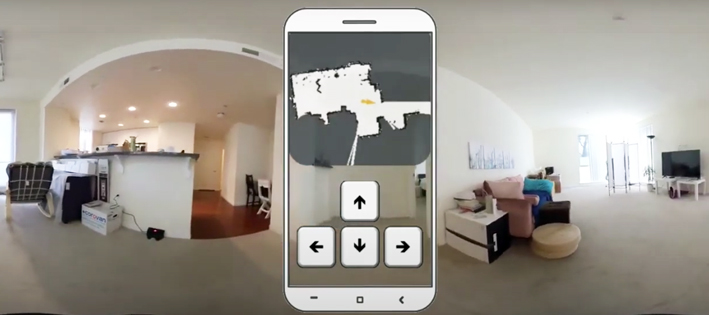Start-up lets buyers tour properties remotely
- January 25, 2021
- Steve Rogerson

Founded in 2019, Taiwanese start-up Unusly uses AI-powered drone technology to let buyers view properties remotely.
The service connects agents, remote buyers and real property. Recently, Unusly released Alice & Bob, enabling real property live tours. Unusly customers can request the service to live tour their real properties such as real estate, leasing apartments and co-working offices over the internet, helping people during the Covid-19 pandemic.
The company builds machine-learning and AI-powered technology for mobile unmanned vehicles, starting with drones. Over 75% of Unusly AI algorithms are designed by two graduate researchers at National Taiwan University. They include deep learning on visual saliency prediction and human privacy protection.
This year, Unusly was selected by Taiwan Tech Arena as one of the 100 Taiwanese start-ups to showcase at CES 2021.
Unusly proves it doesn’t matter where people are through extended reality. The origin of Alice is from the book Alice in Wonderland, presenting a fantasy world by following young curiosity. Another story of Alice is from the Alice & Bob as the first two fictional observers of quantum entanglement, supporting that telecommunication over the speed of light is possible.
Most traditional virtual tours are made by static photos or are incomplete by short clips. They leave behind a lot of the key information such as timeline and blind spots that can hold back customers’ purchase intent.
Alice complements traditional virtual tours. With Alice, tenants, renters and buyers are all connected via the cloud. Showcasing the space to people across countries and oceans is just as easy as how people usually do in person. Users can control Alice to navigate in the space for their own exploration. Alice provides an omniview with live navigator support with a real-time map, and even takes users on a time travel with time-lapse for a more holistic experience.
Founder Luke Lu said Unusly’s service complemented existing products rather than competing with them. The company focuses on two niches – time information and data ownership.
Regarding time information, Lu said most existing online tour services were made by static photos or were incomplete by pre-recorded video clips. They left behind key information such as timeline and blind spots, which can hold back paying customers’ purchase intents.
Regarding data ownership, Lu said most existing products hosted users’ data and claimed data ownership, which raised data privacy and security concerns. For example, the complete information of a single house hosted by a third party may be leaked and then cause security concerns. For another example, users want to have the flexibility to repurpose their data for follow-up applications such as Airbnb leasing, home renovation or interior design. Unusly returns data ownership to users. Users can download their data or deny Alice & Bob host data.
“In Unusly, we build software applications running on top of robotic hardware to help foreigners connect and control their robots as tour guides over the cloud,” said Lu. “They can deliver and receive timely information as presented physically.”
He said Unusly’s mission was also to eliminate biases and discriminations on robots.
“We respect robots as much as our collaborators because they are really improving our life together,” he said. “Robots are immune from Covid-19, and humans are immune to computer viruses, so we could help each other to achieve a win-win situation.”
The idea of Unusly though started long before Covid-19.
“We always have this firm belief that in the future world, the interaction between human beings, business to consumer, and business to business can be connected closer than today,” said Lu. “So we are building software and services for business cases where the sense of presence is most needed, allowing people to be anywhere anytime, even across oceans and nations.”
Lu previously held key positions in the virtual reality industry with Google and Sony.
“I was building the first few eye-tracking VR systems with HTC Vive, Samsung Gear VR and Google Daydream,” he said.
Lu was born in Taiwan and took his PhD degree at Princeton University, where he designed a quantum imaging system using entangled photons and won the Emil Wolf best paper award.

